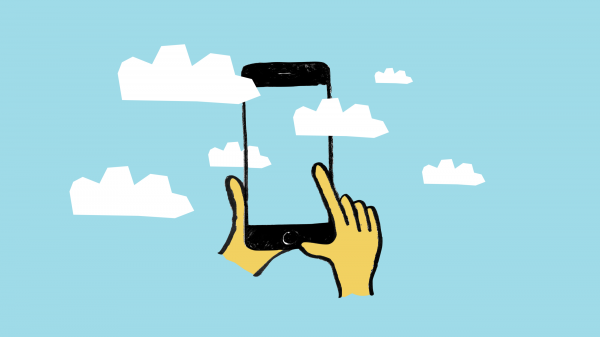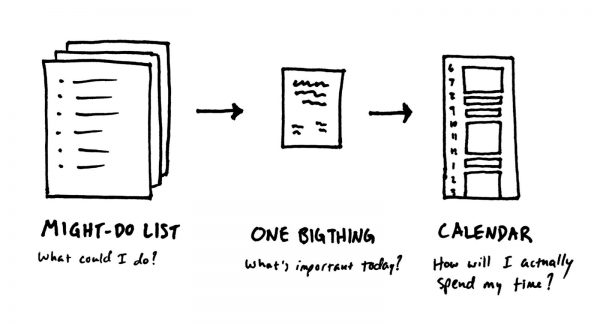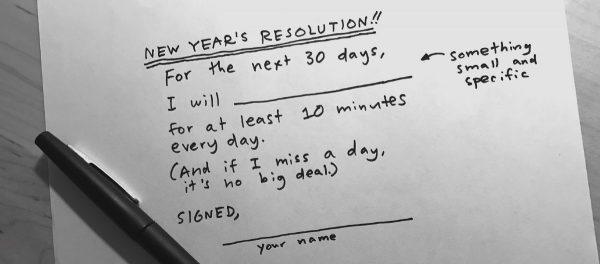I used Headspace for 400 days and all I got was this lousy sense of clarity and well-being
by Jake Knapp
Supposedly, meditation recharges your brain and boosts your ability to focus. Supposedly, it makes you calmer and happier. Supposedly, it even makes the cortex of your brain thicker—which is supposedly good.
Supposedly. But meditation is so dorky.
When I was growing up, meditation was for hippies. Nowadays, a new wave of self-improvement types (like, ahem, me) are getting into it, but I’m not cool either—I don’t want to do something someone like me would do.
Meditation is embarrassing. In fact, I’m embarrassed right now as I type these words.
Still… I kept hearing people talk about meditation, and these people were increasingly not hippies or total dorks. I kept reading stories about new studies validating the benefits.
So I tried the Calm app. The sound effects were nice, but I couldn’t stick with it. I tried Headspace too, but I don’t know… I couldn’t handle Andy’s voice. I mean, is his accent for real? Come on.
Then a few months later, my wife tried Headspace.
“Oh, Headspace,” I said. “What do you think of Andy’s fake accent?”
My wife didn’t think Andy was pretending to have an accent. “That is absurd,” she said. Which I guess it is. “Besides,” she said. “You get used to the accent. And what he’s saying is very no-nonsense.”
I gave it another shot. I did get used to Andy’s accent. And my wife was right, he was plainspoken and no-nonsense. I kept it up for a couple weeks. I started to notice a difference… almost like time was slowing down a little.
Then, in a non-mystical plot twist, I got totally hooked on the badges you get for using the app on consecutive days.

400 days later, my streak finally broke. I was planning to do a “Headspace on Sleep” session before the end of the day… but I fell asleep reading my book and when I woke up, it was past midnight.
Still, even though I was only doing 10 or 15 minutes a day, the changes were significant. I felt less busy—although I still had as much to do as ever. It was easier for me to notice when I was distracted, and I felt I could concentrate for longer periods of time. My thoughts seemed to have more clarity. And, although this sounds very hippy dippy, I felt more wholehearted and… well… willing to be me.
After over a year with Andy, here’s what I think about meditation now.
Meditation is just rest for your brain
There’s nothing fancy about it. The human brain constantly creates thoughts. Most of the time, you go along with those thoughts because, of course, that’s how thinking works, and thinking is super useful.
But constant thinking means your brain never gets rest. So when you meditate, you sit (or sometimes walk or exercise or eat or whatever) and instead of going along with the thoughts, you stay quiet and notice the thoughts, which slows them down, and gives your brain a break.
After meditating, I’d feel refreshed and well-rested. And I suppose it kinda makes sense.
So, okay, meditation is rest for your brain. But here’s the odd thing:
Meditation is also exercise for your brain
Staying quiet and noticing your thoughts is refreshing, but it’s also hard work. Meditation is exertion that leaves you invigorated — just like exercise.
In fact, research on meditation reveals a striking similarity to exercise. Studies show meditation increases working memory and the ability to maintain focus. Meditation has also been shown to boost mood as effectively as antidepressant medication (but, of course, with no side effects). Meditation even makes parts of the brain thicker, just as exercise builds muscle.
And in a very simple way, I guess this is unsurprising. After my year of Headspace, I got to where I could feel the difference between days when I meditated and days when I didn’t. It was remarkably similar to the feeling of days when I exercise vs. days when I don’t.
The science seems to be saying meditation can make you smarter and happier. So it’s probably worth a shot, right? The only challenge is that meditation is hard work. Stopping everything you’re doing to sit and notice your thoughts is quite difficult when you’ve got a million things to do. And the results aren’t outwardly visible — your cortex might bulk up, but you can’t meditate your way to six pack abs.
So how the heck does one convince oneself to meditate?
To be honest, after I got to 400 days in a row, I fell off the wagon. I was so pleased with myself for getting the final badge that I figured I was probably already enlightened—there was hardly any point in continuing.
Recently I embarked on a new career as a writer (maybe all this meditating helped me take the plunge… I dunno) and this meant totally redesigning my days. Nobody’s going to buy the books I don’t write, so I have to make good use of my time.
In this new context, is meditation really worth it? Should I pay money for my Headspace subscription, and burn valuable writing minutes sitting there like a dork with headphones on and eyes closed?
One idea: Keep a “Was it worth it?” journal
To answer this question, I’ve started keeping a “Was Headspace worth it?” journal. Every time I sit down to meditate, even after all my positive experiences, I’m still skeptical. So after a session, I record the results.
It’s surprising to see all the “YES” notes lined up, because I’m always (illogically, stubbornly) skeptical before each session. But there’s the proof, in my own handwriting.

Of course, it makes sense. The reality is that an hour of work without meditation is often unfocused and distracted.
On the other hand, when I start with Headspace, I burn up the first 10–15 minutes—but the rest of the hour (not to mention the time after) is much more efficiently utilized. The difference feels like this:

Another idea: Don’t call it “meditation”
There are all kinds of words for exercise: training, conditioning, walking, running, playing, etc. If you’re embarrassed to say you’re going to Pilates, you can say you’re going to workout instead.
But we only have the one word for meditation — and that means all the funky connotations that come along with it. It sounds mystical, or silly, or intense, or any number of things. And these connotations are a big obstacle.

But if you try calling it “quiet time” or “thinking” or “rest” or “downtime” or “doing a Headspace” then the conversation completely changes.

None of these phrases are perfectly accurate, but then again, neither is “meditate” — which, if taken literally, suggests you’re gonna take a single thought and turn it over and over in your mind (one dictionary definition I came across was “prolonged inconclusive thought” which sounds miserable).
Changing the phrasing isn’t just about peer pressure. It actually can help you try something you might otherwise consider not your thing. Quiet time doesn’t have to be a big intense deal or a change in who you are. It’s just that: some time for quiet.
And, of course, you should try Headspace
I’m not affiliated with Headspace in any way, and I can’t even figure out how to make any money off of recommending the app (believe me, I searched… after all, I’m unemployed).
So this is just my honest opinion: It’s totally great, and you should stick with it, and not beat yourself up if you don’t meditate for 4 days in a row, let alone 400. It just helps a bit each day, and that’s all I’m trying to do now, just remind myself it helps and do it when I can.
Confidential to Andy in case you’re reading—thanks! And for the record, after a year of listening, I’m 99% sure you’re actually British.




